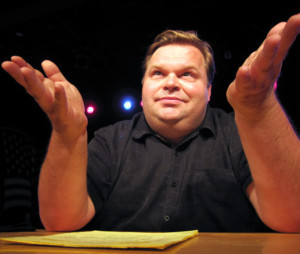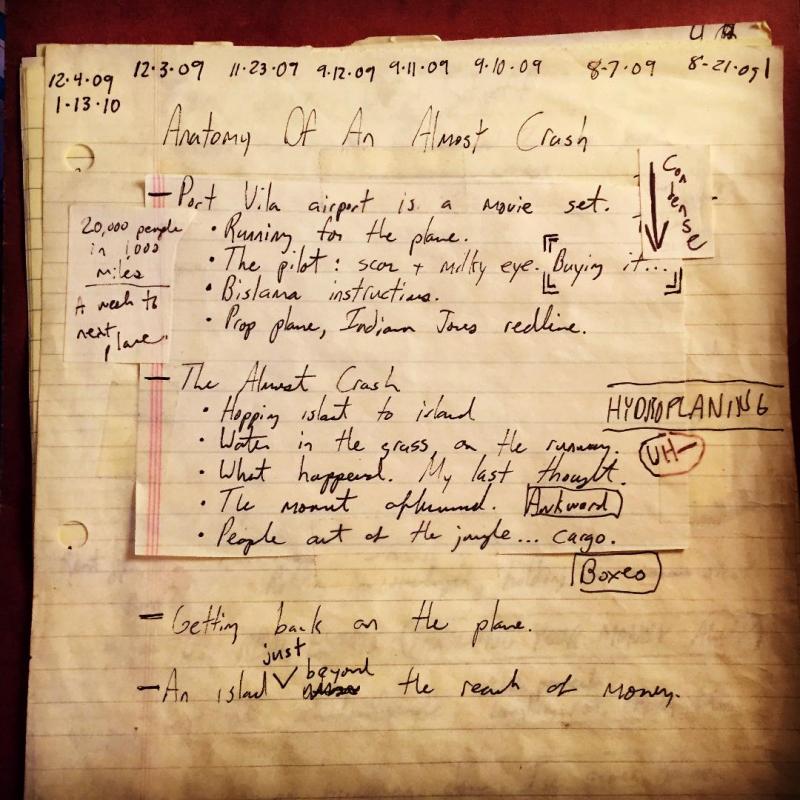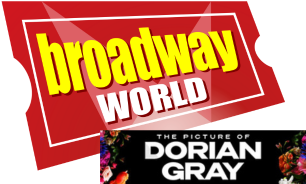Interview: Theatre Life with Mike Daisey

Today's subject Mike Daisey is probably best known here in the DC area for his many magnificent monologues that he has performed at Woolly Mammoth Theatre Company. These appearances include The Agony and Ecstasy of Steve Jobs, How Theater Failed America, and The Trump Card. He is currently living his theatre life at Arena Stage where he is performing his epic A People's History as part of Capital Fringe's Curated Series. The show runs through July 21st.
Mr. Daisey has performed on all five continents. His appearances have taken him to the South Pacific, the Sydney Opera House, an abandoned theatre in post- Communist Tajikistan, Broadway, and beyond.
He has been nominated for an Outer Critics Circle Award and Two Drama League Awards and won a Bay Area Critics Circle Award and six Seattle Times Footlights Awards.
A People's History is unique because even though Daisey considers it one monologue it is broken up into eighteen chapters. In other words, every night is a different show.
If you have seen Mike Daisey before, you know that his large personality comes through in every performance. He is brutally honest but he can also be extremely poignant and moving. This is why he is considered by many including myself to be a master monologist.
Even if you only get to one or two installments of A People's History it will be enough for you to see Daisey's artistry in action. He is a force of nature who is living his theatre life through the spoken word and doing it brilliantly every time.
Did you go to school for performing?
I grew up in rural northern Maine, all the way north on the border with Canada, which is a very wild and poor area of the country. I found performance in high school, where I did a lot of speech and debate and high school plays, and managed with scholarships to get myself to a small liberal arts micro-ivy college. There I focused on writing and theater for four years in an intensive way, acting in dozens of plays and beginning to make my own work and find my voice. The rest of my education has been in the theater performing my work for two decades, teaching others, and listening to audiences in the room night after night.
Had you been working in theatre before becoming a monologist?
I moved to Seattle after college and worked in the garage theater scene there, making work in unusual spaces with other artists. I was an actor in plays, and I've always loved the feeling of being part of an ensemble on stage, but my life's work was calling to me and I created the monologues, which took me away from traditional acting.

Where do you get the ideas for your monologues?
From everywhere, constantly, forever. The real challenge is the process to choosing which stories are the most vital, most charged, most necessary for me to be telling, and to choose where my work should derive from.
Can you please tell us about A People's History?
It's a show about American history that starts on a crisp fall day in 1492, and covers the 527 years that follow, up until the current moment which is now July 2019. The show uses two principal texts as history textbooks, though it draws on my life and a variety of sources, and those two texts are Howard Zinn's A People's History of the United States and a copy of my US History textbook I was taught from in high school when I was sixteen in rural northern Maine.
(1).jpg)
When you started to create A People's History was it always the intent to have it as a multi- evening event?
Yes. I wasn't interest in a summary or highlights of American history, and to actually engage with the wonders and horrors of such an epic story, I needed an epic stage. I always knew it would be in many chapters, just as a book has chapters, and ultimately it is an eighteen night show, which runs about thirty hours in total. It's the largest piece of durational theater anyone has performed in DC, to the best of my knowledge, and definitely the largest by a single performer.
From first thought to final product how long did it take you to create A People's History?
I first conceived the show in the summer of 2014, and it was premiered at the Guthrie Theater in the spring of 2018, about four years later.
What would you say was the hardest monologue for you to create and why?
I see this as one monologue, so I would say-this entire work was one of the hardest I've made. Of this one, the chapters that deal in the starkest, deepest ways with America's foundational sins of genocide and slavery, and talking about how we are all implicated in those crimes, are probably the hardest.
Many of us know you from your performances at Woolly Mammoth Theatre Company. With the recent retiring of Artistic Director Howard Shalwitz, can you please tell us what you enjoyed the most about working with him?
I am still working with Howard, as his opinion is one of a very short list of theater artists and thinkers about the theater that I absolutely listen to-he's an iconoclast and a visionary. Howard is incredibly good at engaging with art and the world openheartedly and with clear vision, backed by decades of experience actually doing the time on stage acting and directing. His dedication to that has meant the world to me, and I am proud to be his friend and colleague.
Of all the monologues you have created what are a few of your favorites?
Oh, probably the ones that mark moments of my life. Wasting Your Breath, my first monologue that showed me what being on stage without a net could mean. 21 Dog Years, my monologue about working at Amazon and the dot com implosion, for how I used it to gain a national audience. How Theater Failed America, for how it interrogated the system I make work in, and was part of conversations that are still ongoing today. The Agony and the Ecstasy of Steve Jobs, because it showed so many people horrible things they know are true, and no amount of shouting at me will ever make them untrue. The Trump Card, which I performed before the election because I knew where we were headed, and I've never been so sorry to be right. And now, A People's History.
What advice would you give to someone wanting to become a monologist?
I have no advice. No one had any for me, either. If you are called to it, you won't need any advice. You'll make your own path, or you'll die trying. If you make it, and you find your voice and you know you are a monologist, drop me a line. There aren't that many of us. We'll get coffee.
Special thanks to Capital Fringe Publicist Daniella Burgos for her assistance in coordinating this interview.
Theatre Life logo designed by Kevin Laughon.
Comments

Videos

.gif)